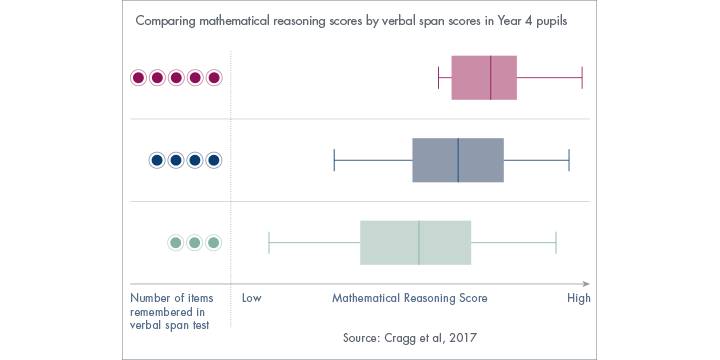20 December 2017

Why is working memory important for mathematics learning?
In this special Doppio collaborative issue, Lucy Rycroft-Smith, Camilla Gilmore and Lucy Cragg consider the evidence around working memory in mathematics learning.
In summary:
- Working memory restrictions limits the amount of information that students can hold in mind
- Young children have a very small working memory capacity and capacities within a typical class will vary widely
- Students who struggle with mathematics may have difficulties with working memory; this explains around 25% of differences in mathematical outcomes
- Classroom strategies such as using manipulatives, repetition, and breaking down tasks into smaller steps may help to reduce working memory load
- Working memory training alone does not lead to better outcomes in mathematics attainment
View Espresso